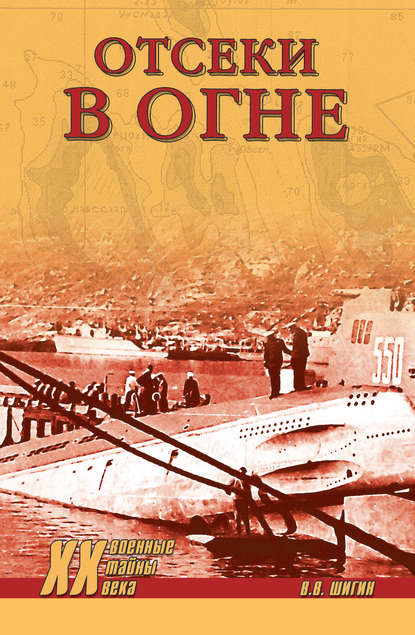- -
- 100%
- +
middle part [`mІdl `pα:t] – средняя часть, середина
mist [`mIst] – дымка
moazagotic clouds [,məυzə`g`Ͻt𝐈k `klαυdz] – чечевицеобразные облака подветренной волны
moist [`mϽІst] – влажный
moisture [`mϽIstʃə] – влажность
morning patches of mist and fog [`mϽ:niŋ `petʃes əv `mIst ən `fϽg] —утренние клочья дымки и тумана
motion [`mουʃn] – движение
mountain area [`mαυntІn ` eərІə] – горная местность
move south—east [`mu:v `sαυƟ`i:st] – продвигаться на юго—восток
move slowly east [`mu:v `sloυlI `i:st] – медленно продвигаться на восток
N
nacreous [`ne𝐈krəs] – перламутровый
narrow belt of heavy rain [`nærəυ `belt əv `hevI `reIn] – узкая полоса проливных дождей
narrow stream [`nᴂroυ `stri:m] – узкое течение, узкий поток
near—ground layer [,nεә `grαυnd `lejә] – приземный слой
near—ground visibility [,nεә `grαυnd vɪzә`bɪlәtɪ] – приземная видимость
north—eastern parts [`no:Ɵ,i:stən `pa:ts] – северо—восточные районы
northern hemisphere [`nϽ:ðən `hemІsfІə] – северное полушарие
nuclei [nju`kli:] – ядро
O
observation [,Ͻbzə:(r)`veІʃn] – наблюдение
(to be) observed [(tə `b𝐈) əb`zə:vd)] – наблюдаться
observer [,əbsə:`ve] – наблюдатель
obstacles [`Ͻbstkls] – препятствия
ocean areas [`Ͻυʃn `æreәs] – океанические области
oppositely charged areas [`ϽpəzІtlІ `tʃa:ʒd `εəriəs] – противоположно заряженные поля
orderly/disorderly [`Ͻ:dəlІ/,dІs`Ͻ:dəlІ] – упорядоченно/беспорядочно
outbreaks of rain [`αυtbreIks әv `reIn] – кратковременные дожди
outgoing [αυt`gϽυІη] – исходящий
overcast [,əυe`kα:st] – обложная облачность
overcome[,əυvə`k˄m] – преодолевать
overtake [,əυe`teІk] – догонять, настигать
overwatered [,əυe`wϽte(r)t] – переувлажненный
P
passage [`pᴂsIdᴣ] – прохождение, ход, переход, передача
pellet [`pelІt] – зерно, шарик, катышек, пилюлька, дробинка, пулька
permafrost [,pə:mə`frϽst] – вечная мерзлота
planning and execution of flights [`plænІη ,ən əkse`kjuʃn ,əv `flαІts] – планирование и выполнение полетов
point [`pϽІnt] – точка, пункт, острие
poor flying conditions [`pυə `flaIIŋ ,kən`dIʃns] – нелетная погода
potentially dangerous weather phenomena [pə`tenʃ(ə)lІ `dænʒ(ə)rəs `weðə ,fe`nϽmenə] – потенциально опасные погодные явления precipitations [,prәsIpI`teiʃns] – осадки (rain [rein] – дождь, snow [`snəυ] – снег, hail [`heil] – град)
powerful [`pαυə(r)ful] – мощный
powerplant [,pαυə(r)`plαnt] – двигательный
precipitations [,prəsІpІ`teІʃns] – осадки
pressure will rise [`preʃə ,wIl `rαIz] – давление будет расти
pressure will fall / will be stable [`preʃә ,wIl `fϽl/,wIlbI `steIbl] —давление будет падать / оставаться стабильным
prevailing conditions [,prI`veIlIŋ kəndIʃns] – преобладающие (господствующие) условия
probable [`prϽbebl] – вероятный, возможный
process of rainmaking [`prəυses əv ,reІn`meІkІη] – процесс дождеобразования
products of combustion [`prϽdΛkts , Ͻv kəm`bΛstʃən] —продукты горения
provide [prϽ`vα𝐈d] – предоставлять
proximity [prәυ`ksɪmәtɪ] – близость
Q
quantitative estimation [`kwϽntətІv ,estІ`meІʃn] – количественная оценка
R
rain (ice rain, continuous rain) [reІn (,αІs `reІn ,kən`tІnІəs `reІn) ] – дождь (ледяной дождь, продолжительный дождь)
raindrop [`reІndrϽp] – дождевая капля
rain gauge [`reІn`geІdʒ] – дождемер
rare [`reə] – редко
relief peculiarities [re`li:f pekjυ`lærІtІs] – особенности рельефа
replace [,rІ`pleІs] – вымещать
required meteorological data [rІ`kwaІət ,metər(ə)`lϽdʒІkəl `deІtΛ] – требующиеся метеорологические данные
rarely [`rɛəl𝐈] – редко
retard [tә r𝐈`tα:d] – замедлять(ся)
rise to near or slightly above average [`rαIz tə `nIə ,Ͻ`slαItlI ə`bɅv `ævIrIdʒ] – подниматься до среднего или чуть выше среднего
roll of thunder [`rϽl , əv ` ƟΛndə] – раскат грома
rotor clouds [`rϽtə`klαυdz] – роторные облака
route [ru:t] – маршрут
S
safety [`seІftІ] – безопасность
safety implications [`seІftІ ,Іmplə`keІʃns] – требования безопасности
satellite [`sætlαІt] – спутник
sea—level pressure [`si:`lev(ə)l `preʃə] – давление на уровне моря
sea salt crystals [`si: `sϽlt `krɪst(ә)ls] – кристаллы морской соли
severe/moderate turbulence/icing [sI`vIә/`mϽdәrәt `tә:bjulәns/`αIsIŋ] – сильная/умеренная турбулентность/обледенение
severe piercing wind [,sə`vІə `pІəsІη ` wІnd] – суровый пронизывающий ветер
shade [`ʃeІd] – тень
sharp boundaries [`ʃα:p `bαυd(ə)rІs] – строгие границы
shower [`ʃαυə] – ливень
(the most) significant [(ϴe `məυst s𝐈g`n𝐈f𝐈kənt)] – самый значительный SIGMET messages [`sIgmet `mesIdʒəs] – сообщения системы SIGMET
skyline [`skαІ,lαІn] – линия небосвода
sleet[`sli:t] – дождь со снегом, мокрый снег, крупа
slippery [`slІp(ə)rІ] – гололед
snow (powder snow, granular snow, firm snow, glazed snow) [`snϽυ(`pαυdə `snϽυ `grænulə `snϽ `fə:m `snϽυ `gleІzd ` snϽυ)] – снег, снежная крупа, снежные зерна, ледяная крупа, ледяные иглы
snow and rain mixed [`snϽυ ,ənd `reІn `mІkst] – снег с дождем
snowflake [,snəυ`fleІk] – снежинка
snowstorm [,snəυ`stϽ:m] – снежная буря
soil [`sϽІl] – почва
solid form [`sϽlid `fϽ:m] – твердая форма
south—west[,sαυƟ`west] – юго—запад
southern half [`sαυðәn `hɅf] – южная часть
space dust [`spe𝐈s `d˄st] – космическая пыль
space science [`speІs `sαІns] – наука о космосе
speed [`spi:d] – скорость
speed of air masses [`spi:d ,əv `eə `mæsəs] – скорость движения воздушных масс
speed of wind [`spId ,əv `wInd] – скорость ветра
spoil [`spϽ𝐈l] – портить
sporadic [spϽ`rædIk] – спорадический, разорванный
spread [`spred] – распространять(ся)
spring [`sprІη] – весна
squall [`skwϽ:l] – шквал
steppe [`step] – степь
stratus type [`strætəs `tαІp] – слоистого типа
stretch up[tə `stretʃ `˄p] – постираться до
structural [`strΛktʃ(ə)rəl] – структурный
subside [tə ,sΛb`sαІd] – оседать
summer [`sΛmə] – лето
sunny spells [`sɅnI `spels] – периоды прояснения
sunrays [,sΛn`rαІz] – солнечные лучи
sunshine [`sɅnʃαIn] – солнечный свет
surface layer [sə:fIs `lejə] – приземный слой
surface weather observations [`sə:fIs `veðə ,əbzə:`veIʃns] – наземные наблюдения за погодными условиями
swamp [`swϽmp] – болото
T
take off [`teІk əv] – посадка
thunder [`ƟΛndə] – гром
thunderstorm [`ƟΛndə,stϽ:m] – гроза
top[`tϽp] – вершина
top of the mountain [`tϽp әv ðe `mαυntɪn] – вершина горы
towards [tə`wϽ:ds] – по направлению к
trade—wind [`treІd ,wІnd] – пассат
transmit [,tə træns`mIt] – передавать
transonic/supersonic flight [,træn`sϽnIk/,sjupә`sϽnIk `flαIts] – околозвуковой/сверхзвуковой полет
trough [`trΛf] – ложбина
U
(un)even [,(Λn)`Іv(ə)n] – (не)равномерно
under—clouds layer [,ʌndә `klαυds `lejә] – подоблачный слой
(un)stable [(˄n)`ste𝐈bl] – (не)стабильно
(un)steadiness [(`Λn)`stedІnes] – (не)устойчивость
upcurrents [`Λp,kΛrents] – восходящие потоки
upper layer clouds [`˄pә `lejә `klαυds] – облака верхнего слоя
upper winds/air temperatures [`Ʌpә `wInds/`eә `temprәtʃәs] – высотные ветра/температуры воздуха
(12) UTC surface chart [`twelf ju tI sI `sə:fIs `tʃα:t] – приземная карта за (12) UTC (UTC – время по Гринвичу)
V
vary [,tə və`rαІ] – различаться
vertical current [`və:tІkəl `kΛrent] – вертикальный поток
vertical development [`və:tІkəl dІ`veləpment] – вертикальное развитие (расширение)
vertical extension [`vә:tІk(ә)l Іks`tenʃn] – вертикальная протяженность
visibility [,vIzI`bIlItI] – видимость
volcanic ash cloud [vɒl`keInIk ,æʃ`klαυd] – облако вулканического пепла
volcanic eruption [vϽ`lkᴂn𝐈k ə`r˄pʃn] – извержение вулкана
W
warm front [`wϽ:m `frΛnt] – теплый фронт
warming [`wϽ:mІη] – потепление
water basin [`wϽtə `beІzІn] – водный бассейн
water body [`wϽtə ,bϽdІ] – водоем
water content [`wϽtə ,kϽntənt] – влагосодержание, водность
water droplets[`wϽtə `drϽplets] – капли воды
water vapor [`wϽtә `veIpə] – водяной пар
water vapor resiliency [`wϽtə `veІpə ,re`sІljensІ] – упругость водяного пара
wave [`we𝐈v] – волна
weather changes [`wæðə`tʃeIndʒəs] – изменения погоды
weather echo [`weðə `ekəυ] – эхо погоды
weather forecast [`weðə `fϽkəst] – прогноз погоды
weather hazards [`weðə `hæzə(r)ds] – неблагоприятные погодные условия
weatherman [`weðəmen] – синоптик
weight [`weІt] – вес
westerly [`westəlІ] – западный ветер
whirl [`wə:l] – вихрь
widespread [`wαІd,spred] – широко распространенный
width[`wαІdϴ] – ширина
winter [`wІntə] – зима
with a little rain by midnight [,wIð ә `lItl `rein ,bαI `mIdnαIt] —незначительный дождь к полуночи
without precipitations [,wI`ðαυt ,presIpI`teIʃn] – без осадков
wind [`wInd] – ветер
wind direction [`wInd ,dαI`rekʃn] – направление ветра
wind shear [`wІnd `ʃεə] – сдвиг ветра
wind speed [`wInd`spi:d] – скорость ветра
TOPICS OF THE LESSONS
Meteorology in our life
The atmosphere
Atmospheric phenomena
Weather reports : TV weather report (Part 1)
Weather reports : TV weather report (Part 2)
Weather reports : weather report for aviation
Weather reports : weather reports from the boards of the airlines (Part 1)
Weather reports: weather reports from the boards of the airlines (Part 2)
Weather reports: weather reports from the boards of the airlines (Part3)
Surface weather observations
Instruments used in weather forecasting (Part 1)
Instruments used in weather forecasting (Part 2)
Air navigation and meteorology
Seasons of the year (Part 1)
Seasons of the year (Part 2)
Climate (Part 1)
Climate (Part 2)
Warm fronts
Cold fronts
Cyclones and anticyclones
Cloud types (Part 1)
Cloud types (Part 2)
Precipitations (Part 1)
Precipitations (Part 2)
Hail
Thunderstorm situation
Wind
27a. Abbreviations
Temperature
Moisture
Pressure
Fog
Turbulence (Part 1)
Turbulence (Part 2)
Icing
Jet stream
Low altitudes flights (Part 1)
Low altitudes flights (Part 2)
Flights in tropopause zone (Part 1)
Flights in tropopause zone (Part 2)
Flights in stratosphere zone (Part 1)
Flights in stratosphere zone (Part 2)
Flights in mountain zone (Part 1)
Flights in mountain zone (Part 2)
Flights in low latitudes (Part 1)
Flights in low latitudes (Part 2)
Flights over deserts and dry hot areas
Flights in high latitudes (Part 1)
Flights in high latitudes (Part 2)
Flights over water basins
Meteorological flights support
Lesson 1
New words and phrases (Новые слова и выражения):
weather forecast [`weðə `fϽkəst] – прогноз погоды
clear [`klIə] – ясно
сlouds [`klαυds] – облака
wind [`wInd] – ветер
calm [`kα:m] – тихо, безветренно
fog [`fϽg] – туман
precipitations [,prәsIpI` teiʃns] – осадки (rain [rein] – дождь, snow [`snoυ] – снег, hail [`heil] – град)
above/below 0 degrees Celsius [ə`bΛv/bІ`loυ `zІroυ ,də`gri:z `tselsІəs] – выше/ниже 0° по Цельсию
Read and translate (Прочитайте и переведите):
Meteorology in our life
Meteorology studies the behavior of the atmosphere. It plays a great role in our life.
The data collected and operated by trained meteorologists are used in producing weather forecasts. A weather forecast predicts if it will be cold or warm, cloudy or clear, windy or calm and if fog or precipitations are expected. Precipitations can be of various types: rain or hail if the weather is warm (the temperature is above 0 degrees Celsius), and snow if the weather is cold (the temperature is below 0 degrees Celsius).
Many of us are familiar with weather presentations on television and radio. It is how most people get the answer to the question:’What`s the weather going to be like today?’ It helps us to decide whether to take an umbrella or to sit in the sun and take it easy.
But meteorology plays a significant role not only in our everyday life. Accurate weather forecasting is very important in such spheres as: emergency and military services, medicine, farming, and, of course, aviation.
Tasks (Задания):
3.1. Ответить на вопросы по тексту (Answer the questions according to the text):
Вариант 1
1)
What does meteorology study?
2)
Who produces weather forecasts?
3)
What does a weather forecast show?
4)
What types of precipitations do you know?
5)
In which spheres of our life does weather forecasting play a great role?
Вариант 2
1)
What science studies the behavior of the atmosphere?
2)
Does meteorology play a great role in our life?
3)
What does a weather forecast predict?
4)
If the temperature is below 0 degrees Celsius does it usually rain or snow?
5)
How do most people get the answer to the question:”What`s the weather going to be like today?”
3.2. Вставить пропущенные слова/фразы (Fill in the missing words or phrases):
Вариант 1
1)
The science which studies atmospheric phenomena is called …. .
2)
Water freezes if the temperature is …. 0 degrees Celsius.
3)
In our country it usually rains in summer, and …. in winter.
4)
I listen to the …. on the radio every day.
below, weather forecast, meteorology, snows
Вариант 2
1)
A …. made by trained meteorologists helps us to decide what to put on when we go outdoors.
2)
If it is …. you better take an umbrella because probably it will be raining.
3)
Very often …. weather becomes the reason of high waves on the sea.
4)
It is clear today, so …. are not expected.
windy, weather forecast, precipitations, cloudy
.3.
Работа в паре. Прочитайте и воспроизведите диалог (
Read
and
reproduce
the
dialogue
):
(задание общее для обоих вариантов)
– Have you already chosen a profession?
– Yes. I have decided to become a meteorologist.
– Oh, really? I think this profession is very important!
– Sure. Weather forecasts are needed in various spheres of our life.
– Good luck in studying!
3.4. В предложениях содержатся смысловые ошибки. Найдите и исправьте их (There are some meaning mistakes in the sentences. Find and correct them):
Вариант 1
1)
Meteorology studies the behavior of the animals.
2)
Archeologists are people who produce weather forecasts.
3)
Precipitations are usually observed in clear weather.
4)
Strong wind is called hail.
Вариант 2
1)
Topography studies the behavior of the atmosphere.
2)
Water freezes if the temperature is above 0 degrees Celsius.
3)
I usually take an umbrella when it is clear outdoors.
4)
Accurate weather forecasting is important only in emergency service.
3.5. Составьте предложения по их частям (Make up sentences of their segments):
Вариант 1
1)
Every morning / on the radio / the weather forecast / I listen to
2)
I like/in a warm clear weather / very much / to go for a walk
3)
The cyclone / and sunny /and now it is calm / has gone away
4)
Hails / in the summer /occur / most often
5)
The temperature today / is frozen / so the water in the puddles / is below 0 degrees Celsius
Вариант 2
1)
Every day / report on TV / after evening News / is being presented / a weather forecast
2)
I don’t like / in rainy weather / going outdoors / and windy
3)
The cyclone / and windy now / so it is cloudy / has come
4)
Snowfalls / in the winter / occur / most often
5)
The temperature / above 0 degrees Celsius / so there is no ice on the puddles / is already
Lesson 2
New words and phrases (Новые слова и выражения):
water vapor [`wϽtә `veIpə] – водяной пар
condense [kən`dens] – конденсироваться
liquid form [`likvid ` fϽ:m] – жидкая форма
solid form [`sϽlid `fϽ:m] – твердая форма
mist [`mIst] – дымка
height [`hαIt] – высота
climatic change [klαI`metIk ` tʃeInʒ] – изменение климата
global warming [`glϽbɅl `wϽ:mIŋ] – глобальное потепление
Read and translate (Прочитайте и переведите):
The atmosphere
The gaseous layer which envelopes the Earth does not constitute more than a millionth part of the total mass of our planet. Although insignificant in terms of relative mass, this layer of air is necessary for all forms of life; without an atmosphere the Earth would be a dead planet.
The atmosphere, in the dry state, is a mixture of many gases – mostly of nitrogen and oxygen. But the atmosphere is never entirely dry, as water vapor is always present in it. The vapor behaves as a gas but frequently the vapor condenses into liquid or solid form as fog and mist, cloud and precipitation.
The atmosphere consists of 4 layers: the troposphere, the stratosphere, the mesosphere, and the thermosphere.
The troposphere is the lower layer. It is characterized by fall of temperature with height. Its upper boundary is tropopause.
The layer above the tropopause is stratosphere. It is characterized by a temperature which is practically constant with height.
After stratosphere begins mesosphere and thermosphere.
It is well—known that the present day pattern of activity in the Earth – Atmosphere system has been substantially different in the past. These changes have been brought about by man`s activities. For example, climatic change: it has been suggested that the global warming has occurred because of the output of carbon dioxide into the atmosphere by industrial process.






